The Institute for the Conservation of Nature and Forests (ICNF) has stopped part of the work that Frusoal is doing at Quinta da Manta Rota, between Cacela-Velha and Manta Rota, in the middle of the Ria Formosa Natural Park.
Joaquim Castelão Rodrigues, ICNF regional director, told the Sul Informação that the installation works "of a new citrus plantation" on that farm, promoted by Frusoal, "went into a partial protection zone 1", even on the bank of the estuary, having destroyed "old carob trees" that existed in that area, as well as another vegetation cover and the dunes themselves. This part of the work was embargoed in April last year, and a report was drawn up by the ICNF services.
«In the remaining area of the land, the conversion of the dryland orchard, with carob trees, to citrus orchards is being carried out, but this is an agricultural area», where these works can take place, added Castelão Rodrigues. Only in the area next to the Ria Formosa and a house, he said, “they couldn't do what they did”.
And what will happen now? Castelão Rodrigues, who said he was in the field in question last week, "to see what was done", responds that the ICNF is now "waiting for the counterargument" to the embargo notice raised by Frusoal, as the promoter of the agricultural project, Taking into account the status of the affected strip, with about «two to three hectares», promoters will have to at least «reset the previous situation or revert to a natural situation». There may still be time for payment of fines.
However, despite the embargo, the Tavira em Transição movement has recently denounced that "today, it can be seen that the machines and works are still active in that place".
In a post on your Facebook page, Tavira em Transição denounces the «destruction of native tree and shrub species, namely carob trees and species of the protected flora of the Natural Park, large-scale land movements, dumping, alteration of the terrain profile, dune, cliff, and vegetation cover of the soil , as well as the creation of slopes in the Ria Formosa Natural Park».
Part of these alleged illegalities denounced may relate to the conversion of the dryland orchard of carob trees to irrigated citrus, which, according to Castelão Rodrigues, will be, after all, within the legality.
O Sul Informação tried to obtain more information about this case from Frusoal, but without success, as the manager of this, which is the largest Citrus Producers Organization in Portugal, was absent.
In the space of a year, this is at least the third case of destruction of vegetation cover and illegal works in this area of the Ria Formosa, close to Cabanas de Tavira and Cacela-Velha. The first took place in July 2020, when land was deforested and direct access to the lagoon area opened, the second was last April, when it was detected the construction of a two meter high stone wall, a three meter wide road and a fence.
In all these cases, infraction notices were raised, and the processes are still ongoing. However, in none of the cases the restoration of the situation before the destruction took place, at the expense of the promoters of the illegal works.
Photos: Tavira in Transition
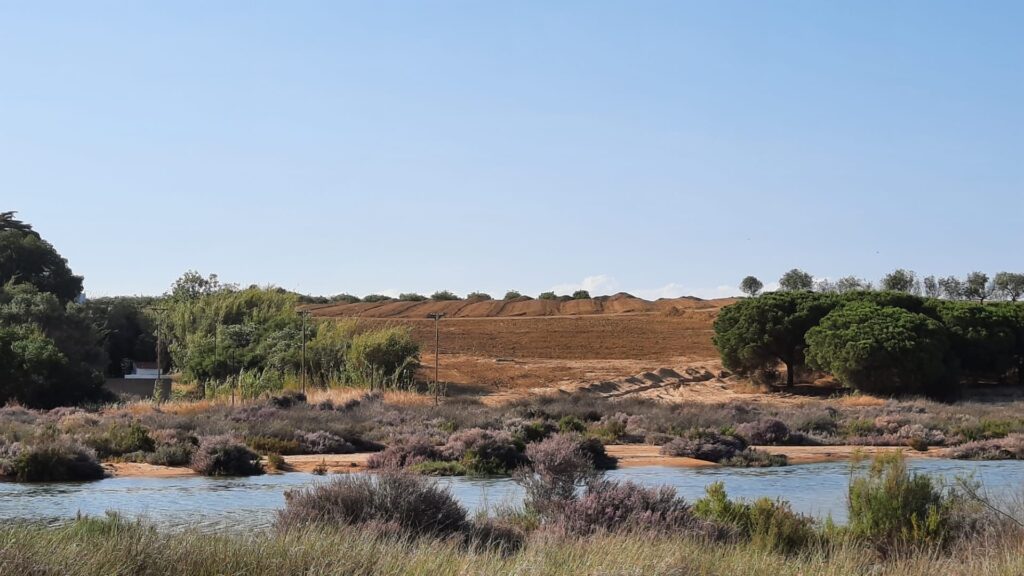
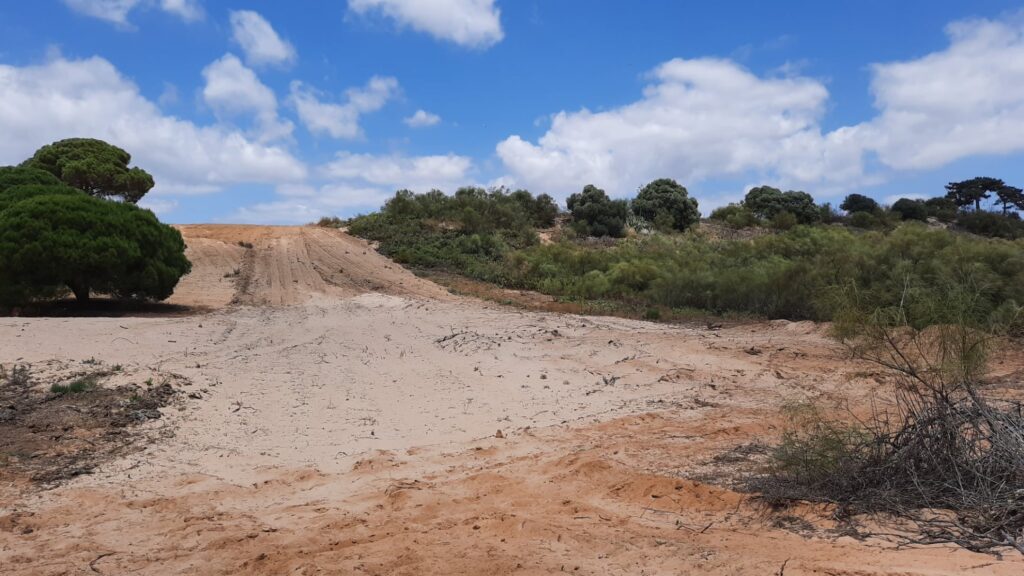
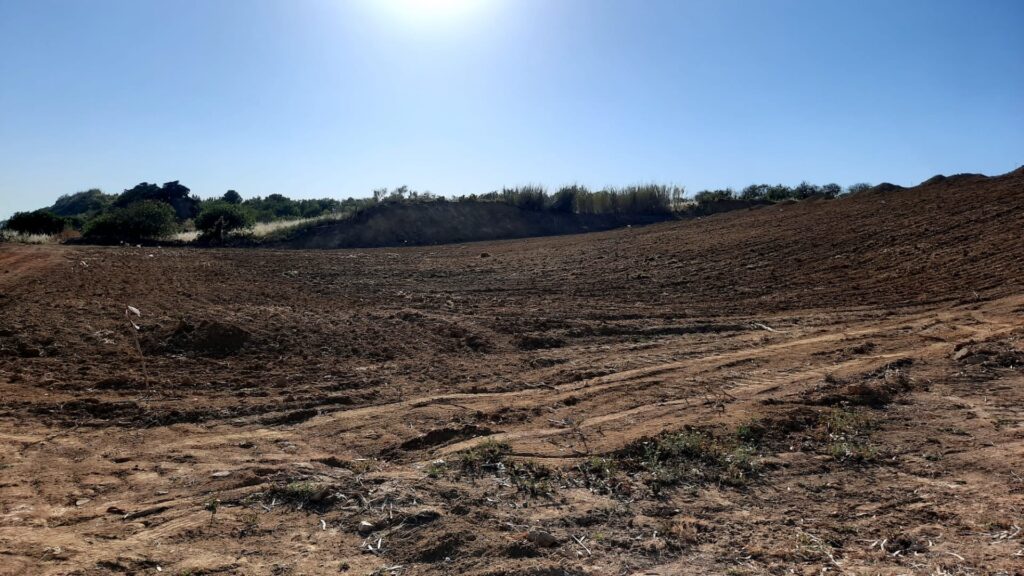
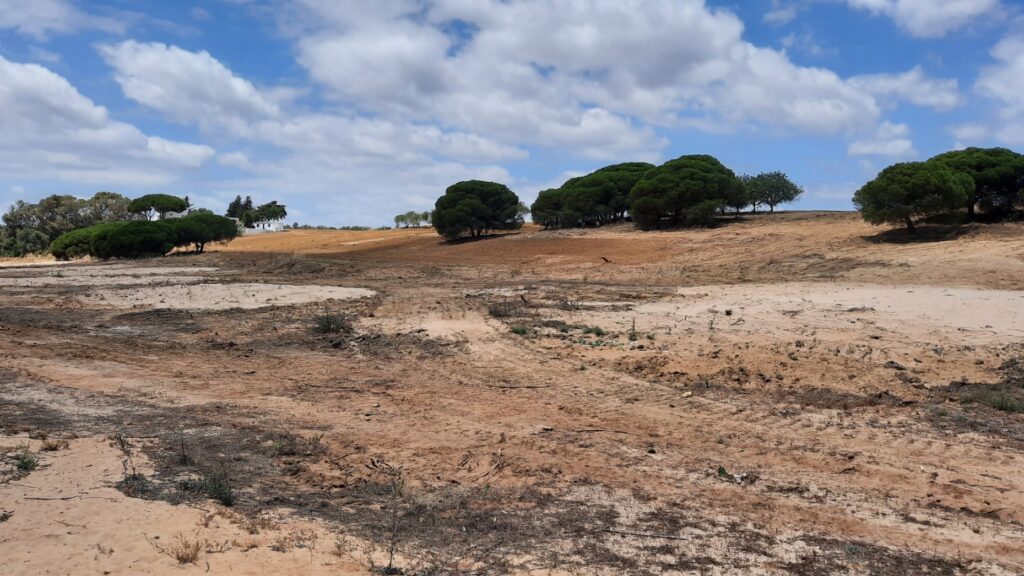
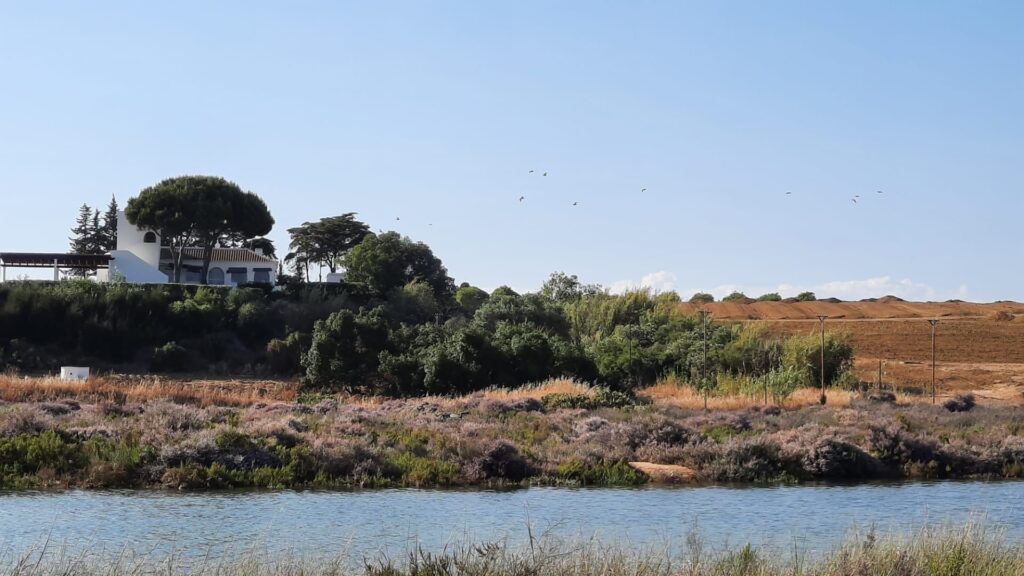
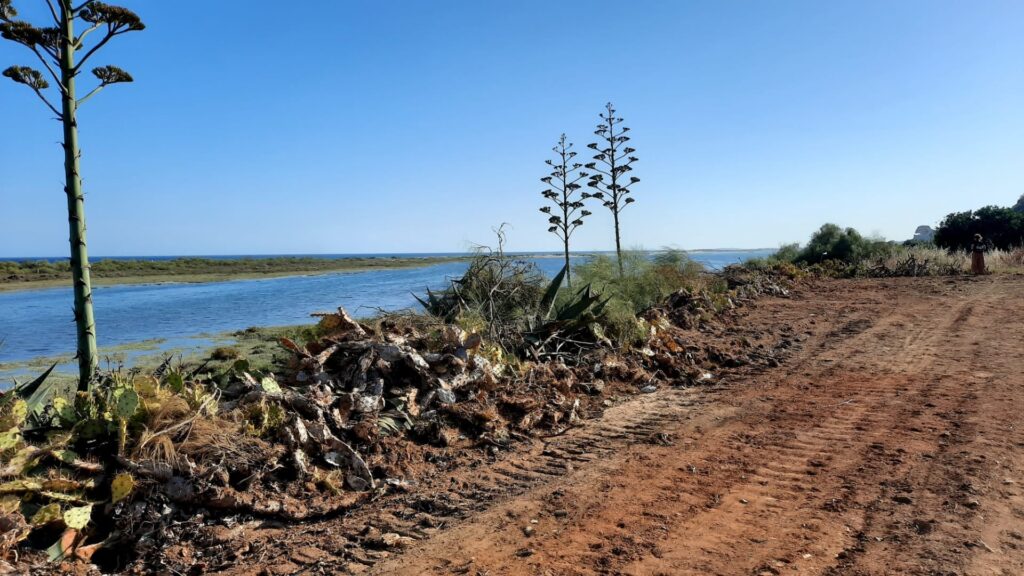
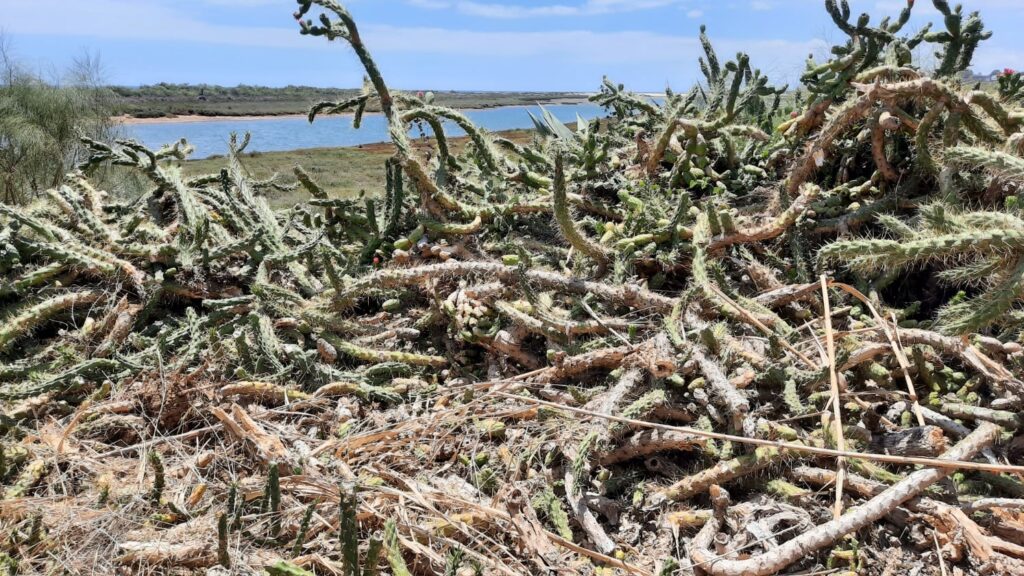
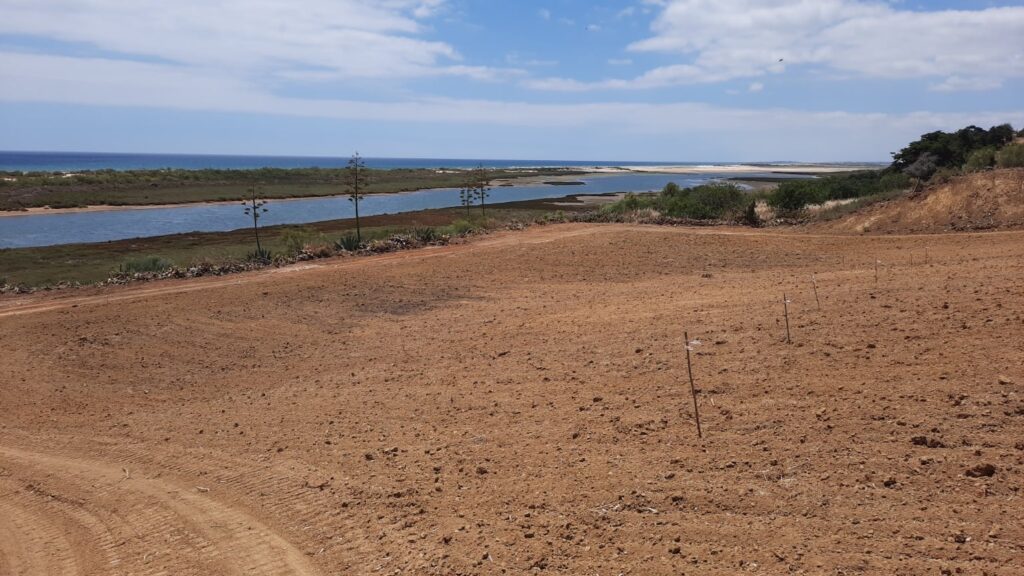
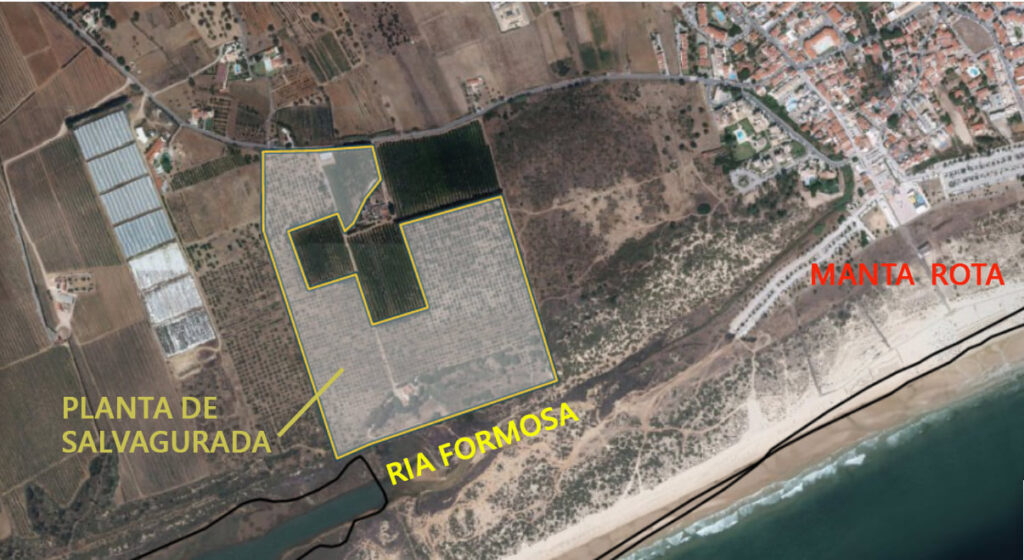



















Comments